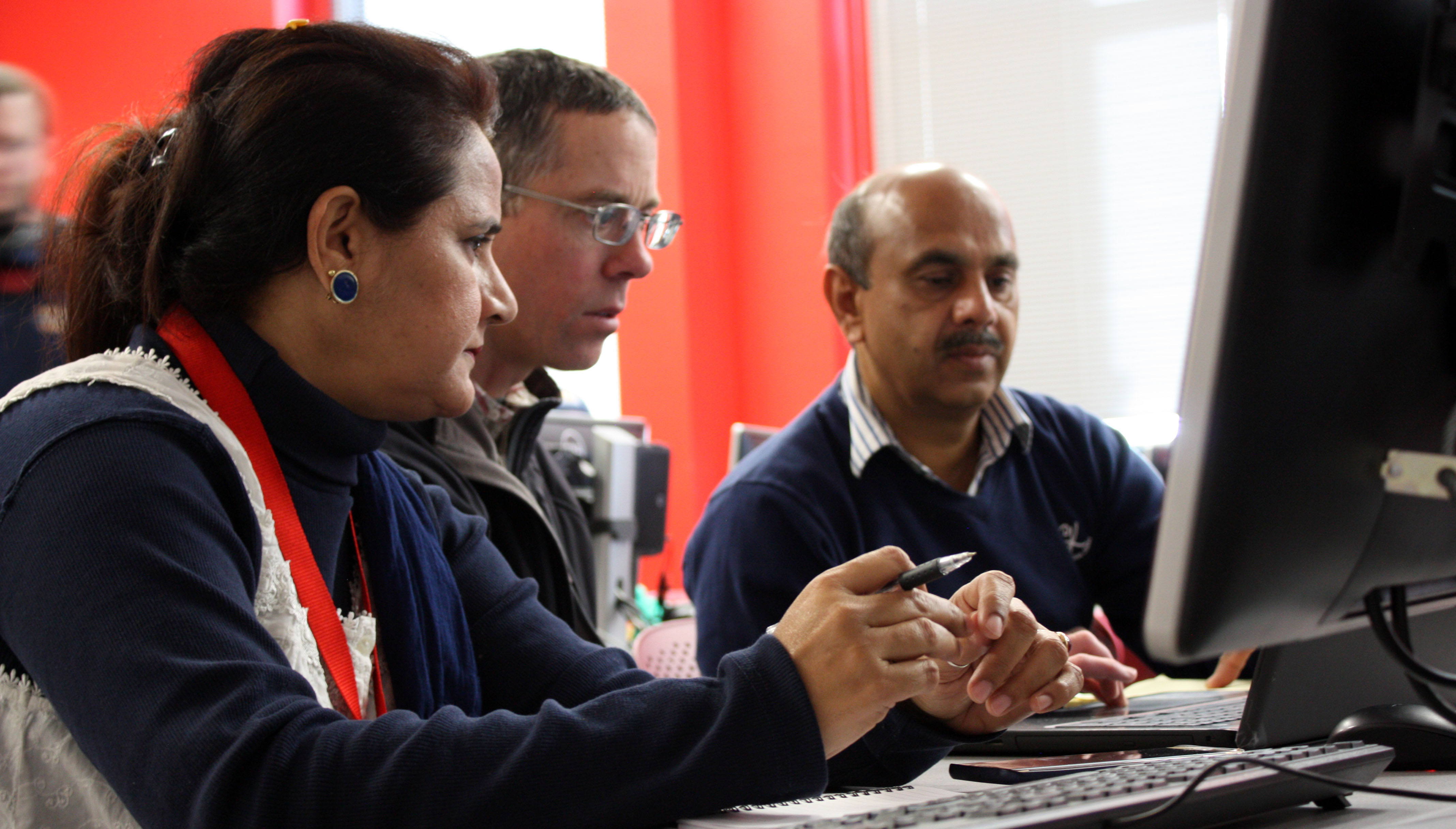
Anila Memon and Abdul Ghani are agricultural engineers with the federal government of Pakistan, but right now—sitting in a university computer lab in the shadow of the Wasatch Mountains—they're a long way from home. Currently in Salt Lake City on sabbatical from their professional posts, both are pursuing doctoral studies at The University of Utah and Mehran University of Engineering and Technology through the U.S.-Pakistan Centers for Advanced Studies in Water. For Anila and Abdul, their research serves much more than academic interests—their findings represent a better quality of life for much of Pakistan’s farming workforce.
Rural Pakistani farmers traditionally create earthen berms and wait for the depressions to fill when the rainy season arrives. Eventually, that water seeps deep into the soil, saturating the land and creating a fertile pad that can be planted, tended, and harvested. But it's an unpredictable system and the farmers who rely on rain-fed agriculture are regularly forced to uproot their lives and follow the rain to feed their families. "Drought equals no work," said Abdul. Poverty is often the corollary to a life spent waiting for water.
Rising temperatures have shifted the monsoon season as well as snowfall patterns these farmers have historically relied on. With increasingly erratic rainfall and no formal storage structure in place to secure against drought, the problems of traditional farming practices compound. This is why Anila and Abdul are using remote sensing and GIS (Geographic Information System) modeling techniques to better understand the area's watersheds and forecast precipitation and groundwater in the Sindh province over the next 50 years.

"We want to quantify and capture (precipitation)," explained Abdul, noting that currently much of the water that falls in Sindh is underutilized. Ultimately, their studies will inform planning and infrastructure recommendations to the federal government of Pakistan with the goal of improving resource collection and distribution. Anila and Abdul's research is laying the groundwork for more economic and environmental stability in the midst of a rapidly changing climate.
The USPCASW Program has been vital to their efforts—providing access to critical historical data and modeling systems not yet available in their workplace. Both students are equally eager to mention the mentorship that has supported their work. U Geography professor Dr. Tim Edgar, Civil and Environmental Engineering faculty Dr. Steve Burian and Dr. Zain Al-Houri, as well as writing mentor Dr. Rick Bereit have offered project oversight during the Exchange. "Everyone has been so generous with their time," said Anila.
Abdul and Anila look forward to broadening the impact of their experience by sharing their knowledge when they return to Pakistan later this Spring. “This Exchange is not just about my learning. It’s about my daughter, my husband, my family, my country…they are all learning because I am here,” Anila reflected.
